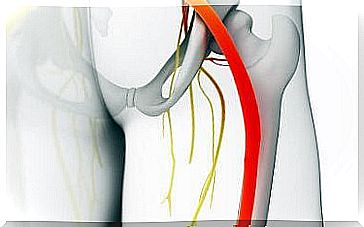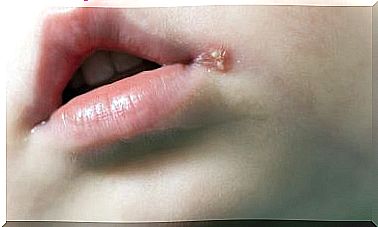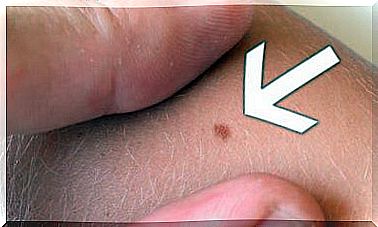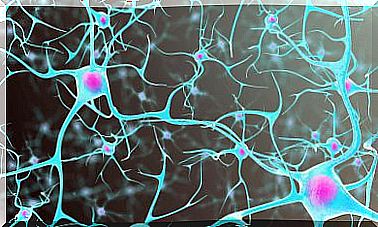Orthorexia: The Obsession For Healthy Food
Have you heard about orthorexia? This term may seem strange to many; however, it is how the obsession with healthy food is known. While maintaining a healthy diet is a health priority, taking it to the extreme carries several risks.
Unlike other eating disorders, orthorexia focuses on the quality of food, and not its quantity. The drawback is that it leads to too strict control of the power supply and the components that make it up. Next, we tell you more about it.
What is orthorexia or obsession with healthy food?
Orthorexia, also called “orthorexia nervosa,” is the term used to define obsessive preoccupation with eating healthy foods, according to a study published in the Federal Practicioner . Those who suffer from it try to avoid at all costs food products that contain colorants, preservatives, genetically modified ingredients and any other substance that, in their opinion, they consider unhealthy.
Unlike other eating disorders, the person’s goal is not focused on losing weight. Instead, there is an obsession with the benefits of maintaining a healthy diet and a rigorous diet of “pure” foods. Consequently, it reaches situations of social isolation, guilt for not eating healthy food and a preference for fasting.
To date, this condition is still unknown to many people. Furthermore, neither the World Health Organization (WHO) nor the Diagnostic and Statistical Manual of Mental Disorders (DSM-5) have officially declared it as an eating disorder.

Who are affected by orthorexia?
Anyone can develop orthorexia; however, there is greater vulnerability in those who are too strict and too self-demanding. It is also common among those who like to plan and keep a strict control of their lifestyle.
According to information released by the Spanish Nutrition Foundation , women are more likely to suffer from this disorder. In addition, it is common in people who have obsessive compulsive personality disorder and individuals who play some type of sport.
What are the causes of the obsession with healthy food?
As of now, the exact cause of the health food obsession has not been determined. However, it has been linked to the presence of obsessive-compulsive tendencies and a history of eating disorders. It is also believed that a risk factor is having a higher socioeconomic level.
Sources such as the medical journal Comprehensive Psychiatry also state that perfectionism, anxiety and the need for control play a role in this situation. In addition, it has been identified more frequently in professionals as:
- Doctors and health personnel.
- Opera singers.
- Ballet dancers.
- Symphony orchestra musicians.
- Athletes
Symptoms and diagnostic criteria of orthorexia
In order to differentiate orthorexia from healthy eating, some criteria were proposed for the diagnosis of this disorder. They were revealed through the scientific journal Eating Behaviors , and include the following:
- The person begins to feel the need to eat healthy and change their eating habits. Thus, avoid any food that you consider unhealthy, such as those that contain fats and sugars.
- The foods that the person chooses begin to be more limited.
- In order to eat healthier and healthier, the orthorexic spends hours researching, planning and preparing his meals.
- By straying from their imposed rules, they will feel guilty.
- They take pride in their diet, seeing them as healthy options.
- The “healthy” eating mentality can become isolating from others.
- When orthorexia worsens, people may exclude their other activities of interest.
- They have medical problems, such as excessive weight loss or malnutrition.
- Your body image, self-esteem, identity, or satisfaction largely depend on adhering to self-imposed dietary rules.
Negative effects of orthorexia
In the beginning, wanting to adopt a healthy diet does not have to represent something bad. However, the problem arises when this becomes an obsession. Orthorexia not only has effects on physical health, but also on a psychological and social level.
Physical consequences
For now, studies on orthorexia remain limited. However, like other eating disorders, it carries health consequences. In particular, by leading to a restrictive diet, it can lead to problems such as the following:
- Malnutrition.
- Anemia.
- Heart rhythm disturbances.
- Digestive problems.
- Dehydration
- Metabolic acidosis.
- Bone wear
- Hormonal problems

Psychological consequences
Without a doubt, the obsession with healthy food has psychological implications for caring. The person living with this disorder is involved in the following:
- Feelings of guilt and self-loathing.
- Compulsion towards purification of the body through cleansing and fasting.
- Excessive concern about where food comes from.
- Spending excessive time researching and sorting foods.
- Reduced focus on the environment around them.
- Anxiety and depression.
Social consequences
According to a post in Eating and Weight Disorders , a person with orthorexia does not like to lose control when it comes to their eating. They are so strict about how they eat that they prefer to avoid social activities associated with eating, such as family dinners or outings.
On the other hand, their tendency to feel that their eating habits are the best complicates social interactions much more. Because of this, they end up suffering from social isolation.
Treatment and prevention of the obsession with healthy food
The objective of the treatment is to replace the nutritional deficiencies that the person has incurred by excluding certain foods from their diet. Thus, it is necessary to establish correct dietary habits and treat possible organic complications derived from a poor diet.
In this sense, an evidence-based nutrition education is necessary for the person to understand and change their false beliefs about diet. Similarly, it is convenient to adopt a multidisciplinary treatment, in the hands of a doctor, a nutritionist and a psychologist.
Avoid any extreme with the diet
As we can see, although it is about healthy eating, extremes with diet are harmful. Obsessing over eating healthy not only exposes health, but also has psychological and social effects that affect the overall quality of life.
Therefore, the ideal is always to consult with a nutrition professional to determine a diet according to the needs of each one, without falling into excesses or uncontrols.









